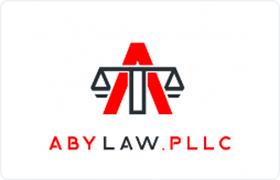Madison White Collar Crime Lawyer, Mississippi
Sponsored Law Firm
-
 x
x

Click For More Info:
-
Abby Law, PLLC
403 B Towne Center Blvd Suite 102 Ridgeland, MS 39157» view mapCriminal Defense Law Get the Legal Support You Need
If you need an experienced litigation attorney, look no further than Aby Law, PLLC. We are a trusted general practice law firm in Ridgeland, MS.
800-953-2840
FREE CONSULTATION
CONTACTJ Kennedy Turner
Government, Medical Products & Devices, White Collar Crime, Indians & Native Populations
Status: Inactive
Devin Whitt
Workers' Compensation, Divorce, White Collar Crime, Medical Malpractice
Status: In Good Standing
 Heather Aby Ridgeland, MS
Heather Aby Ridgeland, MS Practice AreasExpertise
Practice AreasExpertise
